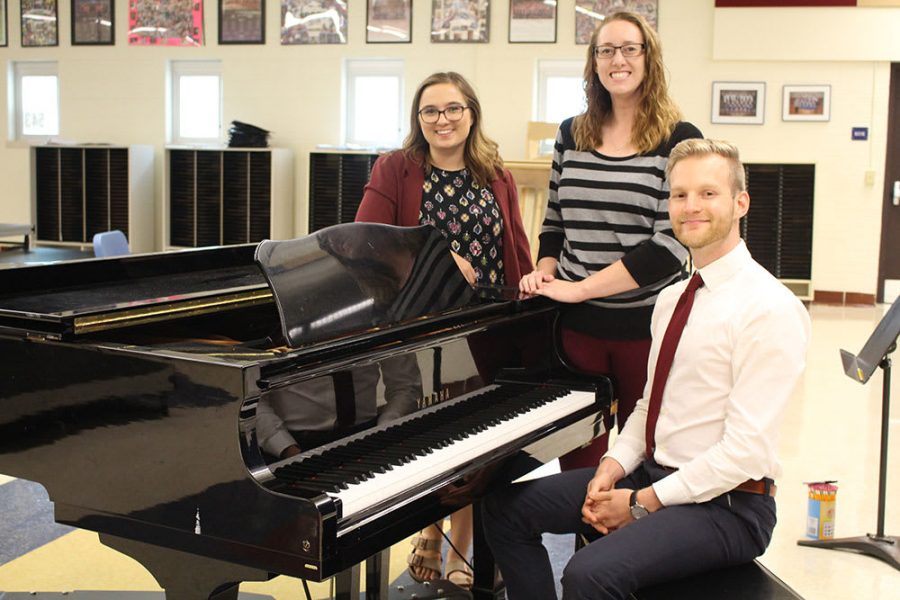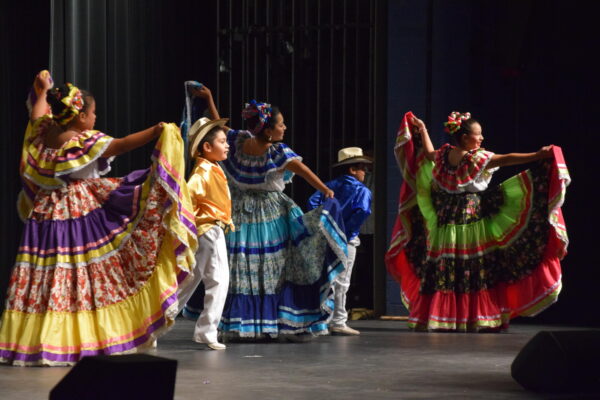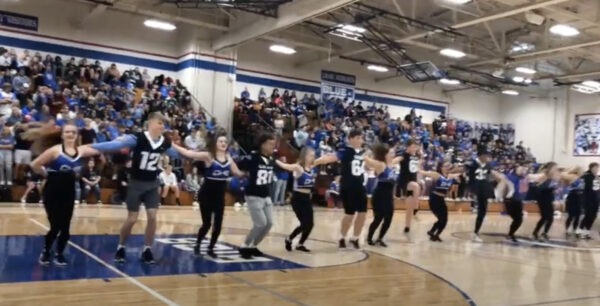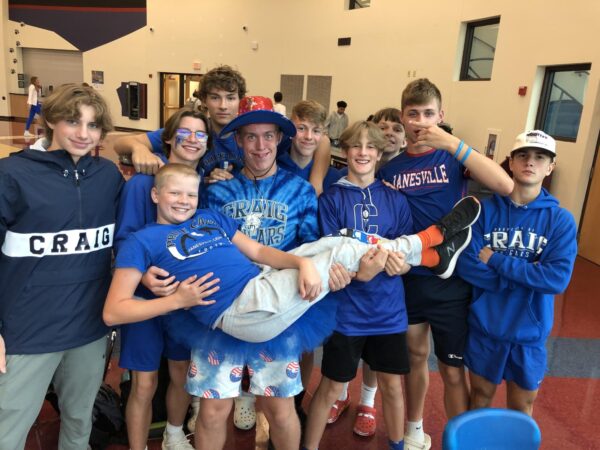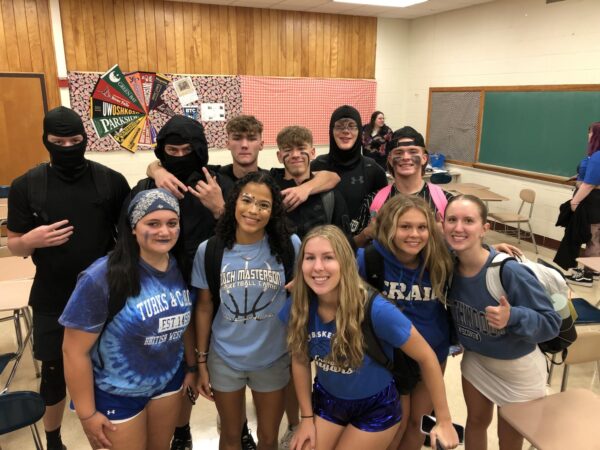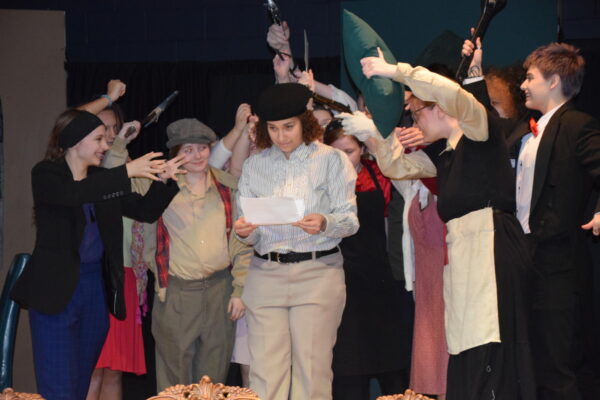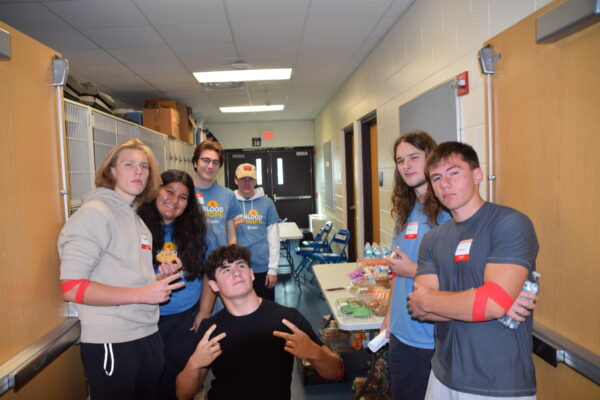Craig Online: English, Agriculture, and Music shares sources of success and struggle
In this final installment of “Craig Online” the English, agriculture, and music teachers share their triumphs and struggles with online learning, how their students are adapting, and their curriculum adaptations
Some optimistic outlooks were seen early by the English department. English teacher Avery Westrich noted a positive about her recent experience with online learning, saying that, “kids are checking in just to connect.” This positive sentiment was mirrored by Anne Vander Zee who noted that kids who are not normally engaged in live, in-person classes are engaged in the online format.
English Department leader Nicole Hilbilink has found through the online format, she can engage students in various ways, as it is easier to have a theme for each day and to engage students in specific topics.
For her social justice classes, Hilbelink has created two theme days: Mental Health Monday and Self-care Friday. Among some of the activities for Self-care Friday were virtual field trips to zoos or museums and spending time in nature to enjoy a rare warm day in Wisconsin and capturing the moment.
As for the technological side of online learning, some teachers had a quicker learning curve than others. Agriculture teacher Diane Morgan modified the lessons as needed, but noted it was a HUGE learning experience for her. The first two weeks were very stressful for Morgan, as she found it difficult to get anything done efficiently. Technological issues including impromptu laptop shutdowns and being unable to find videos and materials from the school servers were some barriers to lesson planning and creation.
Self-proclaimed technological amateur and English teacher Alex Schaar says that “We did it right” by alternating weeks, with hours 1-4 one week and hours 5-8 another week. This smaller course load has helped teachers to adapt to constantly changing demands.
Schaar has seen some of the benefits to technology, including the easy-to-make rubrics on Google Classroom.
Student engagement has been experienced differently by each teacher. Band teacher Jake Wiele thinks that students are adjusting really well, as Mrs. Morgan said “it (student engagement) was slow at first, but now they are engaging more.”
On the other side, english teachers Kristi Ruggles and Julie Fry worry about student participation. Ruggles said, “I am worried about achievement gaps” as students who are not doing as much work online tend to be the ones who need to most practice and have the most academic struggles and deficiencies, further setting them behind their classmates.
Fry noted that significant numbers of students are not engaging in the school work and are in danger of failing the class.
As for curriculum changes, the Agriculture and Band classes have had to improvise to find projects students can do from home. Morgan was unable to find a virtual greenhouse to take the place of “this wonderful learning classroom.” The greenhouse and plant science classes were tough for Morgan to adapt, as the students were right in the middle of getting the plants ready for sale. All of those tasks fell on her and being unable to keep up with all of the work, she had others come in and help in hopes of being able to sell the plants soon.
A typical week in Mrs. Morgan’s class involves at least two days of notes and “live lectures” and some kind of project. For the animal classes, Morgan assigned some vet cases and for the plant science classes, she assigned an experiment that can be done at home using stems.
Band teacher Mr. Wiele has had maybe the most difficult time of any department, as music requires constant and immediate feedback for improvement, as well as the motivation that frequent group performances bring.
“A big driving force to our curriculum is concerts and performances, hence being a ‘Performance Art.’ Without those driving forces, we are refocusing on individual skill building as an instrumentalist and listener,” reflected Mr. Wiele.
A typical week involves assigning work on Monday through a video explanation as a Google Classroom assignment and then answering questions and holding office hours until Saturday when the assignments are due. Once the assignments are submitted, Wiele listens to everyone’s video and tries to give them feedback. He finds a challenge to be the absence of immediate feedback as they would usually receive through in-person instruction.
Wiele acknowledged the struggles of online music, saying, “I’m trying to make all my classes that are 50-65 kids practice individually on skills rather than collaborate in class. Sadly, one person’s part isn’t very satisfying to practice. It is like ordering a pizza and getting cooked bread.”
Departments ranging from English to Agriculture to Music have faced their own challenges transitioning and adapting to online learning, and have faced different students’ responses.
Despite some of the positives shared by these teachers, every teacher agreed that nothing can replace the in-person connection and constant support that is characteristic of a Craig High School education.

(She, her, hers)
Gabby Petruzzello is a Senior at Craig High School. She has been on the newspaper for three years, and is currently the Chief Editor...


